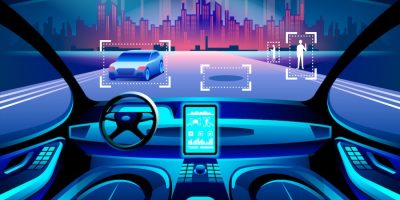About Us

Our Mission
At ai2people.com, we care deeply about how AI shapes our lives and the impact it has on society. That’s why we have made it our mission to bring you the latest news, research, insights and infographics related to Artificial Intelligence. Our team of experts and enthusiasts is dedicated to curating the most relevant and accurate information on AI, so that you can stay informed and make informed decisions about this rapidly evolving technology. Whether it’s exploring the applications of AI in everyday life, examining the moral implications of AI, or keeping you up-to-date on the latest advancements in the field, we are committed to delivering high-quality, engaging content that helps you understand the impact of AI on our world.
Our Vision
Our ambition is to become the most reliable and premier supplier of data and research regarding Artificial Intelligence and Big Data Analytics, with the aim of maximizing the strategic worth of businesses all over the globe.
Who are we
We are a team of enthusiasts in the AI field. Our experts have IT, Marketing, and financial backgrounds. They are eager to uncover the secrets of artificial intelligence and help people understand the concept. If you are passionate about AI, you might want to join us and become a member of our team.
The rise of artificial intelligence (AI) has been nothing short of phenomenal, with advancements in the field rapidly changing the way we live and work. But as AI continues to evolve, the question on everyone’s mind is: Is AI the future? From self-driving cars to personalized medicine, AI is already transforming many aspects of our lives. But what does the future hold for this rapidly evolving technology? Join us as we delve into the potential of AI, its impact on society, and what the future may hold for this game-changing technology.
The effect of AI on people’s everyday life
AI has a profound effect on the everyday life of people in many ways. It has the ability to automate and simplify tasks, leading to increased efficiency and productivity. AI-powered personal assistants, such as Siri or Alexa, make it easier for people to access information and manage their daily activities. Additionally, AI is increasingly being integrated into healthcare, where it can be used to diagnose diseases and develop personalized treatment plans. AI is also changing the way we interact with technology and is being used in areas such as self-driving cars, facial recognition, and voice recognition.
What is the application of AI in everyday life?
The application of AI in everyday life is growing rapidly, with new use cases emerging all the time. AI is being used to personalize online shopping experiences, improve customer service through chatbots, and even monitor and analyze financial markets. AI can also be used in healthcare to analyze medical images, monitor vital signs, and develop personalized treatment plans. Additionally, AI-powered language translation and speech recognition tools are making it easier for people to communicate and access information in different languages.
Will AI replace humans?
The question of whether AI will replace humans is a controversial one, with arguments on both sides. While AI has the potential to automate many tasks and make our lives easier, it is not yet capable of replacing human judgment, creativity, or empathy. However, as AI continues to advance, there may be some jobs that become automated, and it is important for society to be proactive in addressing the potential impacts of this change.
What are the moral aspects of AI?
The moral aspects of AI are complex and multifaceted, and include questions about privacy, ethics, and the impact of AI on society. For example, the use of AI in criminal justice or immigration enforcement raises important ethical questions about the potential for discrimination and bias. Additionally, the use of AI in areas such as hiring and promotion raises questions about fairness and equity. It is important for society to consider these moral implications as AI becomes increasingly integrated into our lives.
What are the negative effects of AI?
The negative effects of AI on the community can include job loss, economic disruption, and ethical concerns. For example, the automation of certain jobs may lead to widespread job loss and economic hardship, particularly for workers in industries that are heavily impacted by automation. Additionally, the increasing use of AI in areas such as criminal justice and immigration enforcement raises important ethical questions about the potential for discrimination and bias. It is important for society to consider these negative effects and take steps to mitigate them as AI becomes increasingly integrated into our lives.
Is AI the future?
AI has the potential to transform many aspects of our lives and has already made significant progress in fields such as healthcare, finance, and transportation. While AI has the potential to automate many tasks and make our lives easier, it is not yet capable of replacing human judgment, creativity, or empathy in all situations. However, as AI continues to advance, it will likely play an increasingly important role in many areas of society. Ultimately, the future of AI will depend on how it is developed, regulated, and integrated into our lives. It is important for society to consider both the potential benefits and challenges of AI and to ensure that its development and use align with our values and ethical principles.











